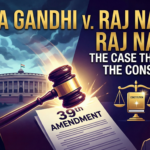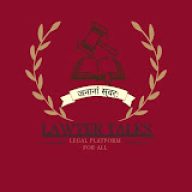This Article contains the Important legal Judgment of August 2024.
Table of Contents
ToggleState of Punjab vs Davinder Singh 2024 INSC 562
COURT: The Supreme Court of India
CORAM: CJI D Y Chandrachud, Justices Manoj Misra, B R Gavai, Pankaj Mithal, Vikram Nath, Satish Chandra Sharma and Bela M Trivedi
DATE OF JUDGEMENT: 1st August 2024
FACTS
In 1975, the government of Punjab issued a notification dividing its existing 25% reservation for SC into two categories. Half of these seats reserved for the SC category were to be offered to Balmikis (Valmikis) and Mazhabi Sikhs. The other half of the reserved seats was for the remaining groups within the SC category. This notification continued to remain in effect for 31 years, until the SC’s five-judge bench decision in E.V. Chinnaiah v State of Andhra Pradesh (2004) set aside a similar law in Andhra Pradesh. Since the SC’s Chinnaiah decision ruled that sub-classification within the SC category was not permitted, the Punjab and Haryana HC struck down the Punjab notification on 25 July 2006.
The Punjab government argued that E.V. Chinnaiah was not in accordance with the SC’s ninejudge bench decision in Indra Sawhney v Union of India (1992). In Indra Sawhney, the SC recognised that some classes within the OBC category may be more or less backward than others. Accordingly, states were permitted under law to make sub classifications within the OBC category to address such differences. The Punjab government contended that E.V. Chinnaiah wrongly understood this to mean that only the OBC category could be sub-classified and not the SC category.
ISSUES RAISED
Whether the States have power to sub-classify the SC/STs into different groups based on their inter se backwardness for extending the benefits of reservation?
JUDGEMENT
The Supreme Court with the majority of 6:1 called for identification of creamy layer among the Scheduled Castes and Scheduled Tribes (SC/STs) to take them out of the fold of affirmative action (reservation). Four out of the seven top court judges allowed sub-classification of SC/STs, also called for creamy layer identification among SC/STs, so that benefits of reservation reach only the backward among such communities. Justice Bela Trivedi delivered a dissenting judgment.
Majority judgment said that “Reservation should be meant for only the first generation among a category and if the second generation has come up then benefits of reservation shall not be given and State should see if after reservation, the second generation has come shoulder to shoulder with the general category.”
Government of NCT of Delhi vs Office of Lieutenant Governor of Delhi 2024 INSC 578
COURT: The Supreme Court of India
CORAM: CJI D Y Chandrachud, Justice P S Narasimha and Justice J.B. Pardiwala
DATE OF JUDGEMENT: 5th August 2024
FACTS
The Lieutenant Governor (LG) of Delhi appointed the ten aldermen to the Municipal Corporation of Delhi (MCD) without the aid and advice of the Delhi government’s cabinet. A petition was filed by Aam Aadmi Party-led Delhi government which claimed that this was the first time since Article 239AA of the Constitution came into effect in 1991 that such a nomination had been made by the LG by completely bypassing the elected government.
Petitioner said that the only two courses of action open to the LG were to either accept the proposed names recommended to him for nomination by the elected government or differ with the proposal and refer it to the President.
ISSUES RAISED
Whether the Delhi LG is bound by the aid and advice of the Delhi government’s cabinet on appointment of aldermen?
JUDGEMENT
The Supreme Court said that “It was 1993 Delhi Municipal Corporation Act which first vested the power to nominate on LG. The power expressed by the statute on LG shows the statutory schemes in which power is distributed. Delhi LG is expected to act as per the mandate of the statute and not the aid and advice of council of ministers.”
The Supreme Court held that “It is the law made by the parliament, it satisfies the discretion exercised by LG since law requires him to do so and falls under exception of Article 239.”
Joint Forum of Medical Technologies of India v UOI WPC 983/2023
COURT: The Supreme Court of India
CORAM: CJI DY Chandrachud, Justice JB Pardiwala and Justice Manoj Misra
DATE OF JUDGEMENT: 12th August 2024
FACTS
A petition was filed before the Top Court seeking constitution of State councils after framing of rules and regulations by Centre for discharge of functions, setting up of autonomous bodies, setting up of allied colleges etc. The petitioner said that due to the non-implementation of the National Commission for Allied and Healthcare Professions Act, 2021, sub-standard institutions can impart allied health and education services in India. There is no uniformity in the professional qualifications required for entry-level positions for various allied healthcare professions. Further, there is no clarity on the scope of practices in various allied health fields.
The NCAHP Act provides for a regulatory body and State-level councils for all allied healthcare professions that were earlier not governed by the National Medical Commission, Dental Council of India, Indian Nursing Council, or Pharmacy Council of India Acts. These healthcare professions and professionals include: – Medical laboratory and life sciences; Trauma, burn care, and surgical/ anesthesia-related technology; Physiotherapy; Nutrition science; Optometry; Occupational therapy; Community care, behavioral health sciences.
ISSUES RAISED
Whether the constitution of State councils to implement the provisions of the National Commission for Allied and Healthcare Professions Act, 2021 (NCAHP Act) is required?
JUDGEMENT
The Supreme Court said that “The proliferation of these institutes is a serious matter of concern, and the parliamentary legislation was to provide a legislative framework to prevent such proliferation. Even after three years the Union and States have failed to discharge their responsibility.”
The Supreme Court directed the Ministry of Health and Family Welfare to convene an online meeting with State authorities within two weeks to develop a roadmap for implementing the Act.
Jalaluddin Khan v. Union of India 2024 SCC Online SC 1945
COURT: The Supreme Court of India
Coram: Justice Abhay S. Oka and Justice Agustine George Masih
DATE OF JUDGEMENT: 13th August 2024
FACTS
A bail application was filed before the Top Court against the order of the High Court by a 61- year-old former cop booked who was charged under the UAPA for being an active member of Popular Front of India (PFI).
The appellant had rented the upper floor of his place to the co-accused and they were planning to create disturbances during the visit of the Prime Minister Narendra Modi to Bihar in 2022. However, before they could cause any disturbance, the police apprehended them and they were booked for criminal conspiracy and promoting enmity.
The police had retrieved documents from them relating to unlawful activities aimed at disrupting the sovereignty of India and to cause disaffection against the country and for establishing pan-Islamic rule in India by subverting the Constitution. Considering the nature and gravity of the matter, the case was taken over by the NIA and the accused were booked under UAPA.
ISSUES RAISED
Whether the principle that bail is the rule and jail is the exception applies on the offences under special statutes like UAPA?
JUDGEMENT
The Supreme Court while granting bail said that “Bail is the rule, jail the exception is to be applied even in special statutes. When the case is made out for grant of bail, courts should not have any hesitation in granting bail. The allegations of the prosecution may be very serious, but the duty of the court is to consider the case in accordance with law. If courts start denying bail even in deserving cases, then it is a violation of fundamental rights under Article 21. So, we have granted bail.”
Mineral Area Development Authority etc vs Steel Authority of India and ors 2024 INSC 554
COURT: The Supreme Court of India
Majority Opinion: CJI DY Chandrachud, Justice Hrishikesh Roy, Justice Abhay S. Oka, Justice J.B. Pardiwala, Justice Manoj Misra, Justice Ujjal Bhuyan, Justice Satish Chandra Sharma and Justice Augustine George Masih
Minority Opinion: Justice B.V. Nagarathna
DATE OF JUDGEMENT: 25th July 2024
FACTS
The case involved the issue of whether State governments are denuded of powers to tax and regulate activities concerning mines and minerals in view of the enactment of the Mines and Minerals (Development & Regulation) Act (Mines Act). The Supreme Court in 1989 had held in the case of India Cement Ltd v State of Tamil Nadu that the royalty is a form of ‘tax’ under the Mines Act and that the imposition of cesses on such royalty was beyond the States’ legislative competence. In February 1995, the Supreme Court in State of Madhya Pradesh v Mahalaxmi Fabric Mills Ltd Upheld Section 9 of the Mines Act and reiterated the 1989 decision.
ISSUES RAISED
Whether State governments can be denuded of powers to tax and regulate activities concerning mines and minerals in view of the enactment of the Mines and Minerals (Development & Regulation) Act (Mines Act)?
JUDGEMENT
In January 2004, a five-judge Bench in State of West Bengal v Kesoram Industries Ltd by a 3:2 majority held that the 1989 Bench had made a typo and only meant to say that cess on royalty is a form of tax and not the royalty itself. In March 2011, a three-judge bench held that there was a “prima facie” conflict between the decisions in the India Cements (1989 judgment) and Kesoram Industries (2004) cases, leading to the reference of the matter to a nine-judge
Bench.
The Supreme Court through 8:1 majority, held that States are not denuded of powers to levy cess on mining or related activities. The Supreme Court clarified that royalty paid by mining operators to the Central government is not a tax and that States have the power to levy cess on mining and mineral-use activities.
Juvenile in Conflict with Law v State of Rajasthan and anr SLP (Crl.) No.9566/2024
COURT: The Supreme Court of India
CORAM: Justice Abhay S. Oka and Justice Agustine George Masih
DATE OF JUDGEMENT: 14th August 2024
FACTS
A bail application was filed before the Top Court against the order of the High Court. The case against the juvenile was registered under Sections 354 (outraging modesty of woman) and 506 (criminal intimidation) of the IPC and Sections 9 and 10 of POCSO Act. Under Section 12, the juvenile made an application for bail, however the same was rejected.
ISSUES RAISED
Whether bail can be denied to a juvenile in conflict with the law when Section 12 of JJ Act is there?
JUDGEMENT
The Top Court noted that none of the orders of the courts below as well as the JJ Board had recorded any finding as to the applicability of Section 12. It also took note of the Psychological Assessment Report of the juvenile wherein nothing adverse had been said against him. The Supreme Court said that Section 12 of the Juvenile Justice Act, 2015 (JJ Act) calls for the grant of bail to juvenile persons accused of violating the law unless exceptional circumstances are made out to deny bail. How bail can be denied to a juvenile in conflict with the law when Section 12 of JJ Act is there?
The Supreme Court while allowing the bail plea said that “Though none of the courts at no stage have recorded a finding that in the facts of the case, the proviso to subsection 1 of Section 12 was applicable, the juvenile in conflict with law has been denied bail for last one year. Hence, the impugned orders are set aside. The appeal is accordingly allowed. We direct that the juvenile in conflict with law shall be released on bail without surety.
Shabna Abdulla v The Union of India and Ors 2024 INSC 612
COURT: The Supreme Court of India
CORAM: Justice B.R. Gavai, Justice Prashant Kumar Mishra and Justice K.V. Viswanathan
DATE OF JUDGEMENT: 20th August 2024
FACTS
An appeal was filed before the Top Court against the Kerala High Court judgment in which it was held that a detenu cannot challenge the detention order passed against him on the ground of non-supply of documents if he is unable to prove that prejudice was caused to him due to such documents being withheld from him.
A Habeas Corpus petition was filed before the High Court seeking production of a detenu, one Abdul Raoof, who was detained under the provisions of the Conservation of Foreign Exchange and Prevention of Smuggling Activities Act, 1974 (COFEPOSA Act). Raoof (detenue), ran a cargo handling business in Dubai, was detained in April 2021 after a compressor of a refrigerator and contraband gold weighing 14763.300 grams valued at around
₹7 lakh, were seized from an air passenger.
ISSUES RAISED
Whether detenu can challenge the preventive detention order passed against him on the ground of non-supply of documents?
JUDGEMENT
The Supreme Court observed that when the Coordinate Bench of the same High Court based on same grounds of detention and on the basis of the same material, which was relied on by the detaining authority, had come to a considered conclusion that non-supply of certain documents had vitiated the right to make an effective representation of the detenus, another Coordinate Bench could not have ignored the same. The Supreme Court said that in the event, the Division Bench of the High Court was of the view that the earlier decision of the Coordinate Bench of the same High Court was not correct in law, the only option available to it was to refer the matter to a larger Bench. The Supreme Court while allowing the appeal held that a detenu can challenge the preventive detention order passed against him on the ground of non-supply of documents and he need not
prove that prejudice was caused to him due to such documents being withheld from him.
Girish Gandhi v. State of Uttar Pradesh and Ors
COURT: The Supreme Court of India
CORAM: Justice Hima Kohli and Justice Rajesh Bindal
DATE OF JUDGEMENT: 22nd August 2024
FACTS
A writ petition was filed before the Top Court by Girish Gandhi, who has been alleged to have committed offences in various parts of the country. The Petitioner has been accused in around 13 cheating cases and has been charged under various provisions of the Indian Penal Code. The petitioner was accused of committing these offences in the States of Uttar Pradesh, Haryana, Rajasthan, Uttarakhand and Punjab. He argued that although he got bail orders in 11 cases registered against him, he was not being released as he was unable to produce sureties for all these cases.
ISSUES RAISED
Whether the grant of bail with excessive conditions is justified?
JUDGEMENT
The Supreme Court observed that “Whether it is to get individuals, to stand as a guarantor for a loan transaction or as a Surety in a criminal proceeding, the choice for a person is very limited. It will very often be a close relative or a longtime friend. In a criminal proceeding, the circle may get even more narrowed as the normal tendency is to not disclose about the said criminal proceeding to relatives and friends, to protect one’s reputation. These are hard realities of life in our country and as a court of law we cannot shut our eyes to them. A solution, however, has to be found strictly within the framework of the law.” The Supreme Court while allowing the plea said that “From time immemorial, the principle has been that the excessive bail conditions is no bail. To grant bail and thereafter to impose excessive and onerous conditions is to take away with the left hand what is given with the right.” The Top Court directed him to furnish a personal bond and two sureties for his release on bail.
- Dying declaration
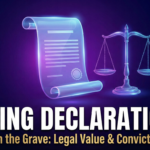
- Bihar APO Exam Date 2026: Prelims Scheduled for July 15 – Check Official Notification
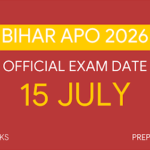
- UP APO Exam Date 2026 Announced: Check UPPSC Official Calendar & Schedule
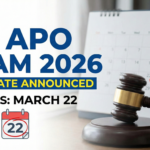
- Indian Army JAG 124 Notification 2026: Vacancies, Eligibility, and Apply Online
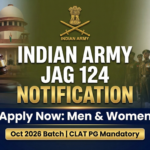
- Official IBPS 2026-27 Calendar Out: Check SO Law & RRB Scale II Dates
